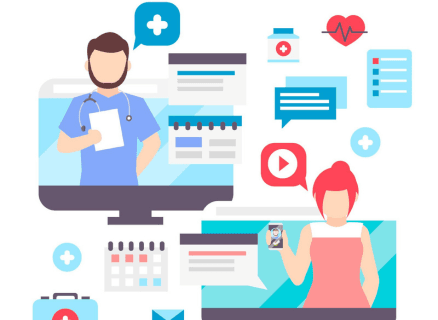Software development
Web development
Security practices
Data analytics
CMS integration
AI tools
Streamlining Healthcare Operations: The Power of Medical Practice Management Software
Iliya Timohin
2024-10-28
In today’s healthcare landscape, optimizing operational efficiency and providing high-quality patient care are crucial for success. Medical practice management software (MPMS) plays a key role in achieving these goals by automating administrative tasks and improving day-to-day operations in healthcare facilities.

Streamlining Administrative Tasks and Boosting Efficiency
One of the main advantages of MPMS is its ability to streamline administrative tasks, which are often time-consuming and error-prone when done manually. Managing appointments, billing, and other administrative duties can be challenging, especially for larger healthcare practices. MPMS automates these processes, reducing errors and saving time for healthcare staff.
For instance, appointment scheduling software integrated into MPMS makes it easy to book and manage patient appointments. It minimizes scheduling conflicts, reduces patient no-shows through automatic reminders, and ensures efficient patient flow. This improvement in time management helps healthcare staff focus on more important tasks like providing direct patient care.
Key Features: Appointment Scheduling, Billing, and EHR
Medical practice management software offers several important features that enable healthcare providers to save time and optimize resources:
- Appointment scheduling software simplifies patient bookings and ensures that clinics operate smoothly, reducing the risk of overbooking or scheduling mistakes.
- Billing and claims management features allow for faster, more accurate billing. These systems automate the invoicing process and handle insurance claims efficiently, leading to quicker reimbursement and fewer billing errors.
- Electronic health records (EHR) integration is another key benefit of MPMS. EHR systems store and manage a patient’s complete medical history, lab results, treatment plans, and medications in a secure, centralized platform. This provides healthcare providers with fast, reliable access to important patient information, facilitating better care coordination and decision-making.
Empowering Patients Through Secure Portals
One of the transformative features of modern MPMS is the inclusion of patient portals. These secure online platforms give patients the ability to access their medical information, view lab results, manage appointments, and even communicate with their healthcare providers. This level of transparency fosters patient engagement and encourages patients to take a more active role in managing their health.
Patient portals also streamline communication by allowing patients to interact with their providers without needing to schedule in-person visits. Patients can ask questions, request prescription refills, and receive updates on their treatment plans through secure messaging features, improving overall satisfaction.
Enhancing Care Coordination
Implementing the right MPMS enhances care coordination between different healthcare providers involved in a patient’s care. For example, a specialist and a primary care physician can easily share a patient’s medical history and lab results via an integrated EHR system. This seamless exchange of information reduces the risk of duplicated tests, miscommunication, or treatment delays. Ultimately, this leads to more effective, consistent patient care.
Better coordination among healthcare teams also helps providers monitor patient progress more efficiently, ensuring that the treatment plans are followed correctly and that any changes in a patient’s condition are promptly addressed.
Focusing on High-Quality Patient Care
With MPMS automating many routine tasks, healthcare providers can focus more on what truly matters—delivering high-quality patient care. Reducing administrative burdens allows physicians and staff to spend more time with their patients, resulting in improved patient experiences and outcomes.
Additionally, by improving workflow efficiency, MPMS helps reduce stress and burnout among healthcare staff. By freeing up time and simplifying processes, healthcare professionals can allocate more attention to diagnosing, treating, and interacting with their patients.

Conclusion
Medical practice management software is revolutionizing healthcare operations by automating tasks such as appointment scheduling, billing, and electronic health record (EHR) management. These features not only improve operational efficiency but also empower patients through secure patient portals and enhance care coordination among healthcare providers. By leveraging this technology, healthcare organizations can ensure that their staff focuses on providing high-quality care to patients, improving both workflow and outcomes.
If your healthcare organization is looking for tailored software solutions, PintaWebware can help. We specialize in developing customized applications that address the specific needs of your medical practice, helping you streamline operations and deliver exceptional patient care. Contact us today to learn how we can assist you!